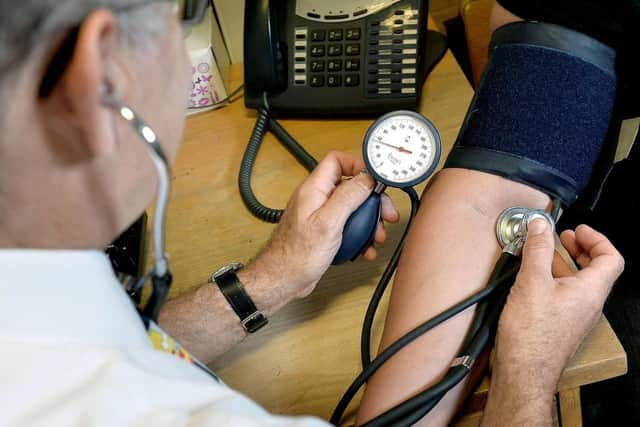Healthcare leaders trying to blackmail unionism into forming an Executive: TUV
and live on Freeview channel 276
The BMA and four royal colleges have claimed a failure to re-enter government at Stormont “will put patients at risk”.
But TUV councillor Stephen Cooper pointed out that soaring hospital waiting lists and reduced access to GPs occurred under the last power-sharing coalition.
Advertisement
Hide AdAdvertisement
Hide AdMr Cooper said: “With Stormont having presided over waiting lists which have spiralled out of control and a GP service which has effectively collapsed we are indeed unfortunate that devolution has imploded just at the very point when all these issues were about to be sorted out.”


He continued: “One suspects that Westminster would make a better job of addressing the challenges as the dysfunctionality at the heart of an inclusive mandatory coalition in the Executive is an ongoing problem that needs to be addressed by all of society.”
On the demand of the BMA and other bodies representing nurses, surgeons and GPs for an Executive to be formed, Mr Cooper said: “The BMA would be better looking for solutions, regardless of who makes the decisions, than seeking to blackmail unionists into operating a system which requires them to implement the protocol, the very thing which a few months ago Europe was threatening to deploy in order to prevent life-saving vaccines coming into Northern Ireland.”
He added: “ Sinn Fein/IRA aren’t in government to make Northern Ireland work. To be clear, the protocol has to go, mandatory coalition has to go, and root and branch reform of Stormont is desperately needed to bring stability and stable government to the people of Northern Ireland.”
Advertisement
Hide AdAdvertisement
Hide AdIn their statement the BMA, Royal College of Nursing, the Royal College of Surgeons of England, the Royal College of Emergency Medicine and the Royal College of GPs said the price of political failure is too severe and will be felt by the most vulnerable.
They added: “Form an Executive without delay. The lack of political stability puts basic service delivery at risk and inhibits our ability to make progress on key transformation projects including addressing our waiting lists, tackle the crisis in emergency admissions and improving capacity in general practice.
“We cannot underestimate the huge impact this uncertainty has on the lives of patients.”